Our responsibility to change the legacy that is a living reality
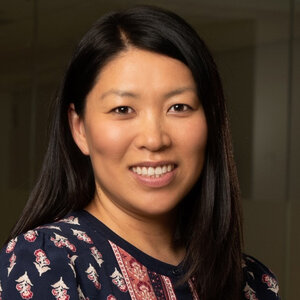
This past February, amid efforts to suppress the teaching of Black history and discussions of race, I traveled with folks from the Communities for Just Schools Fund (CJSF), their community partners, and other funders to the South to relearn—and unlearn—American history. I am convinced that we cannot move forward as a nation until we understand the past, how it is interwoven into the present, and how each of us is called to advance racial justice. And each of us, inside and outside the sector, must grapple with this nation’s history.
During a visit to the Emmett Till Intrepid Center in Glendora, Mississippi, with its founder, Glendora mayor Johnny Thomas, I wrestled with how devastating that night in 1955 must have been for Emmett Till’s family and for the community afterward. In 1950s Jim Crow-era South, a Black person faced daily the very real fear not just of being harassed but of being killed by white supremacists. I tried to imagine living with that kind of fear that night as a man took away a child, not knowing what would happen, or even worse, knowing what might happen—and what might happen to you and your family if you were to speak out. This fear isn’t a relic of the past. For Black Americans, it is still an everyday reality, even in 2023.
As we sat outside the museum after touring the exhibit, we all sensed a heaviness. It felt selfish to sit there and reflect upon that type of rage and despair when I don’t think I have ever experienced it. I have had a great privilege. I get to live my life differently, without the fear of such violence. How many times in our lives have we been in a position where speaking out against something elicited that level of fear? How many times has our fear of speaking up been at or at the expense of someone else? How many times has our fear cost someone their life?
On our bus ride, we watched a documentary film on the murder and trial, in which a reporter asked a Black man what he thought the outcome should be. He shrugs and stares into the camera nervously and gives a noncommittal response on what he thinks about the trial, suggesting that he didn’t have an opinion on something that seems so obvious to the viewer today. But his unwillingness to share what he really thinks about the trial and what he really thinks the verdict should be only points to our own ignorance and our lack of understanding. He fears for his life.
It is critical that all of us revisit the past and question our understanding of it. It is critical that we question the ways in which we apply a distorted lens reflecting no doubt our respective privilege. But for those of us working in philanthropy, our willingness to revisit the past and connect it with the present is particularly critical.
So often it feels that the message in philanthropy is that funders need to get together and lift their voices and champion the cause, whichever cause that might be at the moment. And yes, they should do that. But more importantly, we need to recognize that we do not all live with the same type of fear that continues to permeate the lives of our colleagues, the organizers we wish to support, and the youth that we say we care about.
It is important for us to ask why we are not speaking out more loudly and why are we not doing what we need to do to better support the movements working to eradicate this kind of violence. How much rage and despair does one need to feel before we can stand up and demand change? Communities have been fighting for decades, for example, to address punitive measures in the school disciplinary system. Yet every step forward seems to lead to another maze they must run. We are seeing change, but it shouldn’t be this hard to create a safe space for youth to have their needs met, not just survive but thrive, and live their lives without fear.
Traveling to Mississippi with CJSF and their partners was an incredible gift, but it was also a responsibility. The opportunity to meet other funders who are also supporting education justice work was a gift but also an imperative. As funders we don’t need to reinvent the wheel, but we do need to pay attention and give our full support so that those doing this work—which is hard and takes time—can do it with as few barriers as possible. We can commit to providing multiyear support, general support grants, and capacity-building support and to dismantling the barriers that a convoluted application process creates.
I am immensely thankful for the leadership of CJSF, their partners, and the local community, for reminding me that history is not just history; it is our present and, possibly, our future. It is up to funders to do our part in ensuring a safe, equitable future for all youth—by learning how history lives on today, unlearning privilege, and supporting those working on the front lines.
Erin Morris is a program associate at the Hill-Snowdon Foundation.


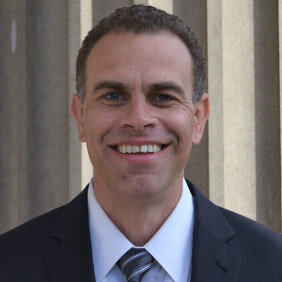
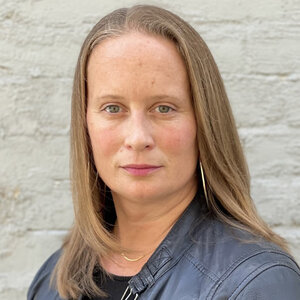
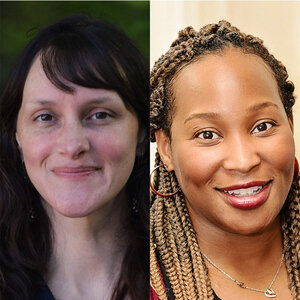
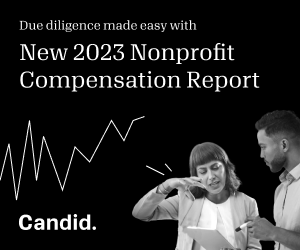


Meet the Southern warriors for the future we deserve